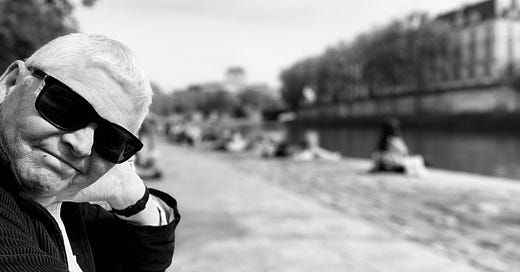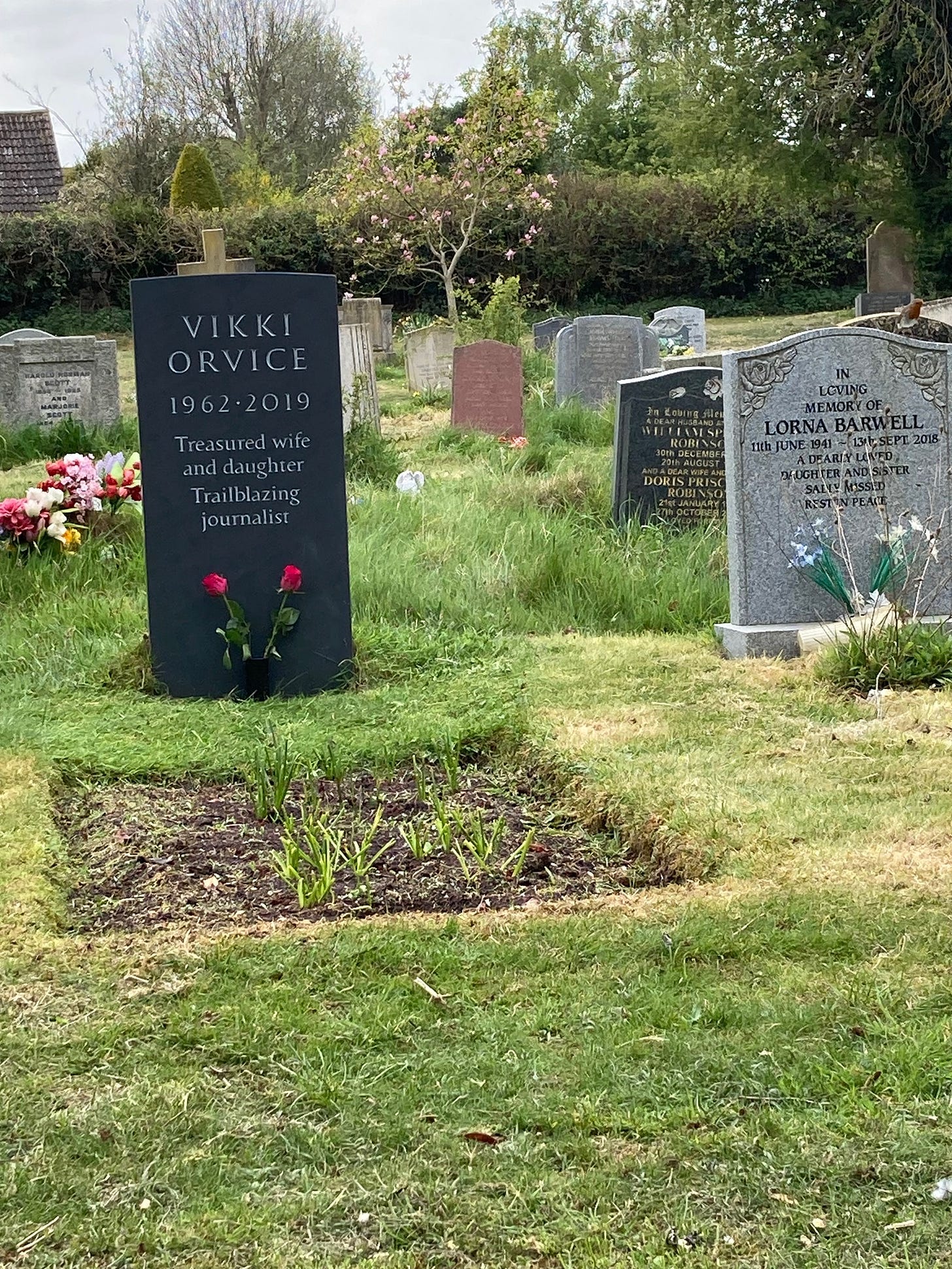FOR Joe Biden, PC will no longer stand for politically correct. Now when those letters are put together, his first thought will be prostate cancer. Welcome to the club that no man wants to be in, Joe, and to that senior committee comprising people to whose bones the cancer has spread, meaning that any hope of curative treatment is gone and that it has become about management and life extension.
Now, this is not the place or platform to discuss who knew what and when during the United States’ 46th President’s tenure, even if it might be hard to believe that there were signs missed during the regular health checks the office demanded before the cancer metastasised. Rather, what follows is about empathy and my own condition that compels me now and then to take stock the best way I know how – by writing about it.
Biden is said to be considering his treatment options. The first he is likely to be offered is chemotherapy to try and slow the cancer’s spread. People tolerate it differently, of course, and it my case that was not very well. Not very well at all. There was the neutropenic sepsis after the first one, followed by more debilitating side effects each cycle than times you could shake your head at the latest Donald Trump piece of dumbassery. For Biden, at the age of 82, it takes some considering. I’m 12 years younger and it will take a lot for me to agree to go through it again.
After six cycles, I’d had enough and a scan revealed it was only working partially. It had kept the cancer away from my internal organs but at the sites in the bones – in right hip, rib cage and lower back – the small tumours were only slightly eroded. To carry on and do the full ten cycles scheduled, I was told, would probably not have much more effect, anyway.
Now I’m on a thing called Radium 223, which is still an infusion via cannula but takes just five minutes compared with two hours for the Docetaxel of last year. The idea is that the radioactive liquid targets the areas of bone disease more accurately. By comparison, it is a doddle, with many fewer side effects. It will also be on Biden’s treatment option list.
Halfway through – six cycles, one every four weeks – the concern was that it wasn’t working. My PSA at the start of treatment was 19 and had then risen to 35 and 49 after the first two cycles, the biggest numbers of my 16 years living with cancer. For some men, the numbers can rise into hundreds and even a thousand, so the urology team at the Royal Marsden Hospital were not too concerned. I was.
Cue a mid-treatment slump. Lassitude, lack of energy and motivation, overtook me. My writing and reading mojos deserted me again. My mobility worsened as the joint pain in knees, hands and elbows seemed to grow more acute, uncertainty over whether this was due to the treatment (unlikely) or osteoarthritis of ageing (probably) adding to the demons assailing me. In such periods, the anxiety-evoking traumas of the past return to haunt, the learned coping mechanisms become swamped.
It didn’t help when I was shown to a consulting room at the Marsden for a meeting with a doctor to determine whether my blood tests earlier that morning showed whether I was fit enough to proceed with cycle number four in the afternoon. I waited alone for a few minutes and in walked a senior professor. Why am I being seen by a head honcho?
I’d had experience of this in Vikki’s early days of treatment for her secondary breast cancer. After a couple of her early chemos, into her consultation ahead of the third cycle walked the head of breast cancer, Prof. Ian Smith, an authoritative but benign figure whom V would come to trust implicitly down the years; a brilliant man. She shot me a nervous look.
“Now,” he said. “What’s going on at Chelsea?” The Prof, as we came to call him, was a Stamford Bridge season ticket holder and just wanted to talk football with two sports writers – to the bafflement of three or four other junior doctors and nurses in the room who had to wait until he’d had his soccer chat. (Back in those days, I had some clout and knew the Chelsea chairman well and thus, I’m pleased to say, was able to obtain better season tickets for The Prof and a couple of other Marsden consultants who would go to games together.)
I had no such relationship with this senior prof in urology who now sat before me, however, and I feared the worst. Sometimes, though, it is simply that it is their turn to do clinic, or they are short-staffed. The ‘tumour flare’ of the early cycles had settled down, he suggested to me. One particular blood test had shown that the tumours’ progress was slowing. They weren’t going away, but neither were they going anywhere else fast for now. My PSA had fallen. It may only have been to 45 but it had fallen.
Well, that was encouraging. And now over the hump of mid-treatment, I felt more energy, the joint pain less restrictive. I could enjoy the grandchildren, help my son a little more with a house move. Here in this piece is the return of the writing mojo, if only tentatively. As for the reading mojo, it came back in the form of a book by Simon Boas entitled A Beginner’s Guide to Dying.
Yes, I know, but being a control freak, I feel I need to glean as much information and insight as I can while I can. And there is no point pretending that we are doing anything other than enjoying the sunset now, or that we are not running out of treatments after this Radium 223, with the next likely to be needed in another six months or so.
You may have heard of Simon Boas. You may actually have heard him. Simon died of cancer last year aged 46, but before doing so he gained some celebrity by writing three poignant pieces for his local paper, the Jersey Evening Post, in which he declared himself as happy as he had ever been in his life. He gained a wider audience when someone at Radio 4 read them and he began to appear regularly on the station, his stoicism, wit and wisdom remarkable.
In his resulting book – inevitably short as the cancer progressed quickly – he also mused on what comes next. He had been an atheist but the disease had forced him to open his mind to the possibility of some kind of afterlife or better place. That in itself is a book, or at least the core of a book which I am considering writing. Then not considering.
Naturally at times like this one’s mortality, faith and beliefs can only be confronted. Cancer demands that of you. To shy away or deny is to fail to accept one’s fate and humanity. It certainly won’t work for me. I have come to see in my 36 years of sobriety after accepting my alcoholism that recovery is a dedication to acknowledging, and not ignoring, reality.
On Easter Monday, I took some flowers to Vikki’s grave, tidied up her plot, cleaned her headstone and bench as best as my physical limitations allow these days. I then sat down to ponder life and death. On a warm day, it seemed a good time and place to do so, especially after having attended the Good Friday three-hour Devotion at St Albans Cathedral. Will I be reunited with her in some way that is beyond my comprehension? Is there a better place, a heaven? My faith that has helped me through dark times in life tells me that I will and there is. But I am human, and I doubt. To my shame, I doubt. My brain is limited in what it can imagine.
At this point, a robin flew from a tree and perched on the headstone next to Vikki’s. For a minute or so it seemed to be staring at me before it flew off. I shook my head and smiled. I know all about the folklore that robins contain the souls of the departed.
Then that night, I had a dream in which V was sitting opposite me and stretched out her hand to touch mine. That’s all I can remember of it now. It’s so frustrating when these epic, vivid dreams are wiped from the memory within minutes of waking.
I suppose I should have been amazed, astonished at these signs and grateful for them. Instead, my first reaction was that I was becoming a sentimental old fool. A robin? A dream? Really? Thankfully all it took for me to recognise the ingratitude of my cynicism was my therapist, when I told him of the ‘signs’. He smiled and said gently: “Ian, Ian…”
I also remembered a wise old-timer I had met in Alcoholics Anonymous, a Scotsman named Bruce, and something he would regularly say in meetings: “After the first miracle, doubt is vulgar.”
There will – I’m pretty sure – be no miracle cures for me and Joe. But that’s not to say we can’t still be thankful for the miracle of life while it lasts. The reading, the writing, the accepting and the questing goes on.
A SIGN… If you look closely, you can see the robin in the top right.
*After I was diagnosed with prostate cancer in 2009, Vikki suggested that we should write a book together, entitled ‘My Cancer’s Worse Than Yours’. Alternate chapters, each reacting to our own and the other’s cancer. We both had too much on at that stage of our journalistic careers, however, though after she died I found some material she’d written. I might even publish some of it on here at some point. She was right by the way – her cancer was worse than mine. She, smilingly, used to call it ‘a bit of man cancer’. She always was right. Even when she was wrong.






Beautifully written. I think, approaching 60, that I’ve been in denial about getting “old.” But the early pains of arthritis in my hands, the wobbling of my immune system that always worked okay but never really well, and of course the gradual fading eyesight in need of ever more aggressive correction, they all conspire to force me to see a little more clearly that I have more life behind me than ahead. Having left a toxic faith some years ago, I don’t know that I believe anything particular comes after. I’m okay if there isn’t, but I hope there is, and I take the little signs like robins as encouragement to keep hoping.
Of course, here is also hoping you and all of us still have a long wait to find out!
Beautifully written as always Ian.
Id read a shopping list compiled by you!
An inspiration to me in how to deal with an awful situation as i follow along behind you.